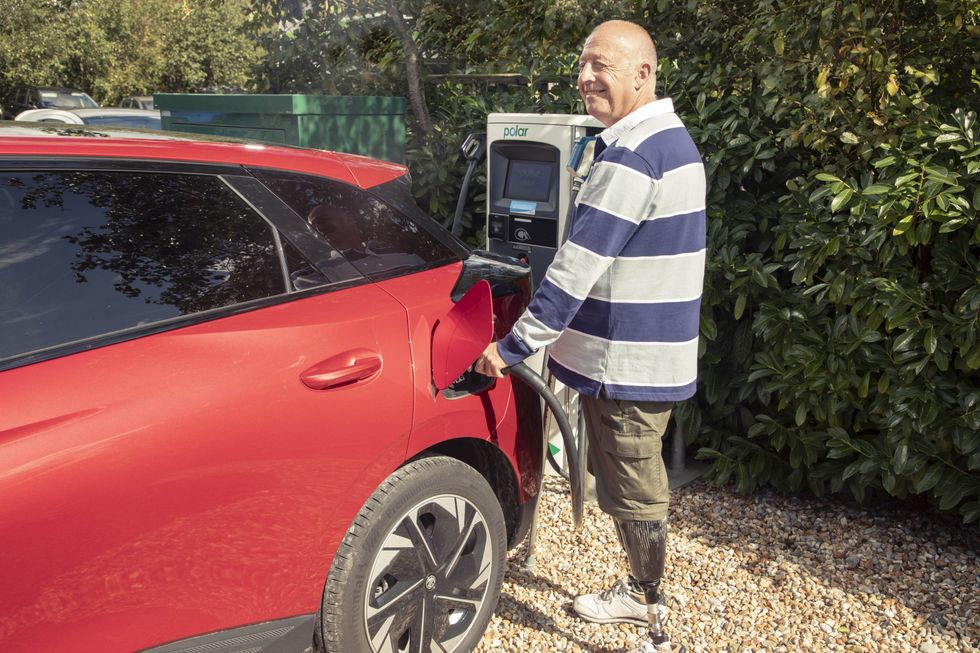Rachel Reeves has been urged not to eliminate crucial tax exemptions from the Motability programme, which thousands of Britons depend on.
Scotland’s Social Justice Secretary, Shirley-Anne Somerville from the SNP, has penned correspondence to Government officials cautioning them against attempting to balance public finances by targeting disabled individuals.
The intervention follows reports that Chancellor Rachel Reeves is contemplating the removal of tax advantages as part of measures to recover £1billion from the programme in the forthcoming Budget.
The Motability scheme enables disabled individuals and their carers to obtain vehicles through the benefits system, addressing their mobility requirements without credit assessments.
Ms Somerville cautioned that such modifications could result in substantial increases to vehicle payments for vulnerable individuals already facing financial pressures.
In correspondence addressed to Work and Pensions Secretary Pat McFadden, Ms Somerville articulated profound apprehension regarding the potential ramifications for disabled individuals who depend on the programme for maintaining their independence and mobility.
She emphasised that Motability currently serves as the sole provider within Scotland’s Accessible Vehicle and Equipment scheme, supporting 87,843 customers throughout the nation.
The Social Justice Secretary highlighted that the organisation has indicated that advance payments for vehicles could rise substantially should the VAT arrangements be altered by Westminster.

Her letter stressed that these proposals would generate considerable anxiety and uncertainty amongst disabled individuals at a time when household finances are already stretched.
She strongly advocated for the Government to abandon these proposals entirely, ensuring disabled people can continue accessing essential support tailored to their requirements.
The warning follows reports that the Chancellor is reportedly examining these measures as part of efforts to address a £50billion financial shortfall, with Treasury insiders suggesting the programme has strayed from its original purpose of assisting those with the greatest needs.
The scheme has expanded considerably in recent years, now supporting approximately 815,000 individuals throughout Britain who can access vehicles ranging from compact hatchbacks to premium SUVs.
LATEST DEVELOPMENTS
- Major brands recall 1.75 million cars as drivers urged to ‘park away from structures’ over serious fire risks
- DVLA launches major new driving laws impacting thousands of motorists from today
- Kia driver slapped with £108,000 in fines for failing to pay Ulez and Congestion Charge costs

Reports indicate that some recipients have obtained high-end vehicles from manufacturers such as Mercedes-Benz and BMW, prompting concerns about the programme’s focus and value for taxpayers.
Transport Secretary Heidi Alexander has suggested support for restricting access to luxury models, stating the Government must ensure the scheme serves those who “genuinely need it” while providing taxpayer value.
Westminster’s failure to engage with the Scottish Government regarding these proposals particularly troubled Somerville, given their potential impact on Scotland’s separately administered AVE scheme.
She condemned the lack of consultation, even though, while the AVE scheme falls under devolved powers, taxation arrangements remain controlled by Westminster.

The proposals have sparked fears amongst disability advocates that essential mobility support could become unaffordable for thousands requiring adapted vehicles.
The scheme has faced additional scrutiny regarding the availability of premium vehicles, with reports suggesting the Chancellor may also remove models from luxury manufacturers from the programme.
A spokesperson for the Prime Minister confirmed the Government would “always scrutinise spending of taxpayers’ money” as a fundamental principle, though declined to comment on specific Budget speculation.
The Government responded to Ms Somerville’s concerns by stating that Motability operates independently from the Government and bears complete responsibility for the scheme’s terms and administration.
Our Standards:
The GB News Editorial Charter







Follow